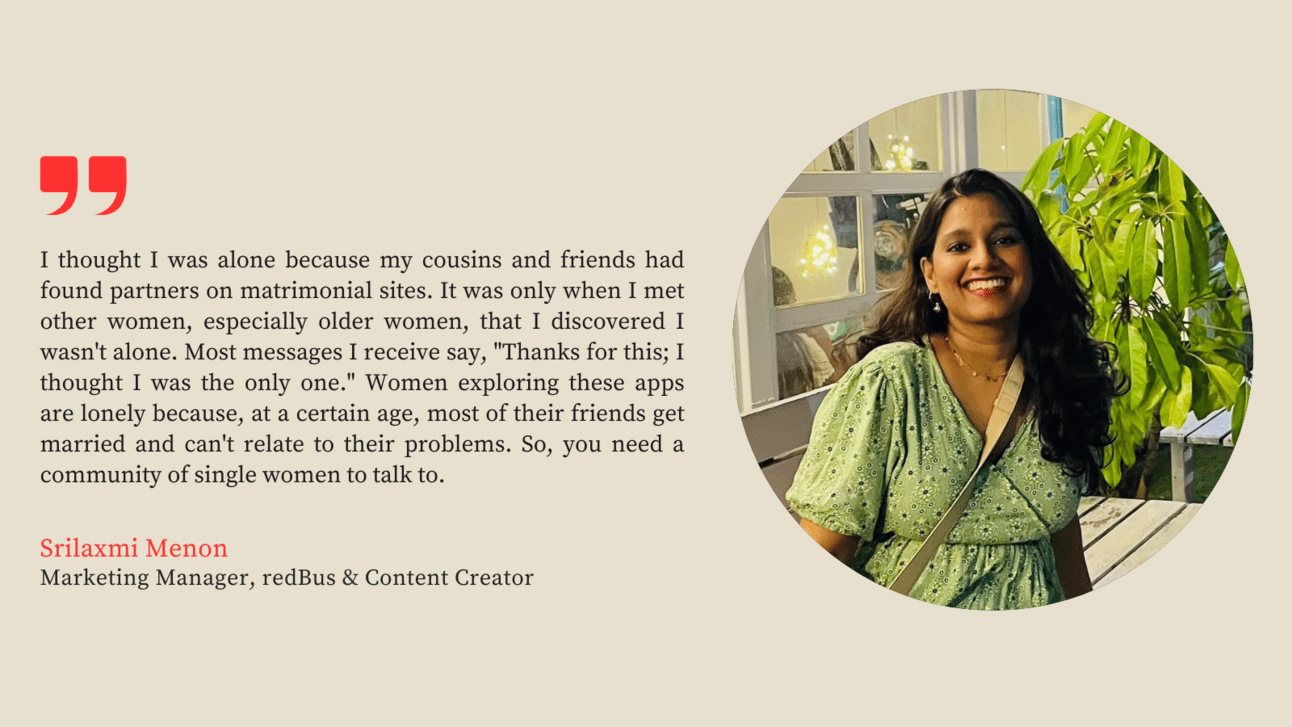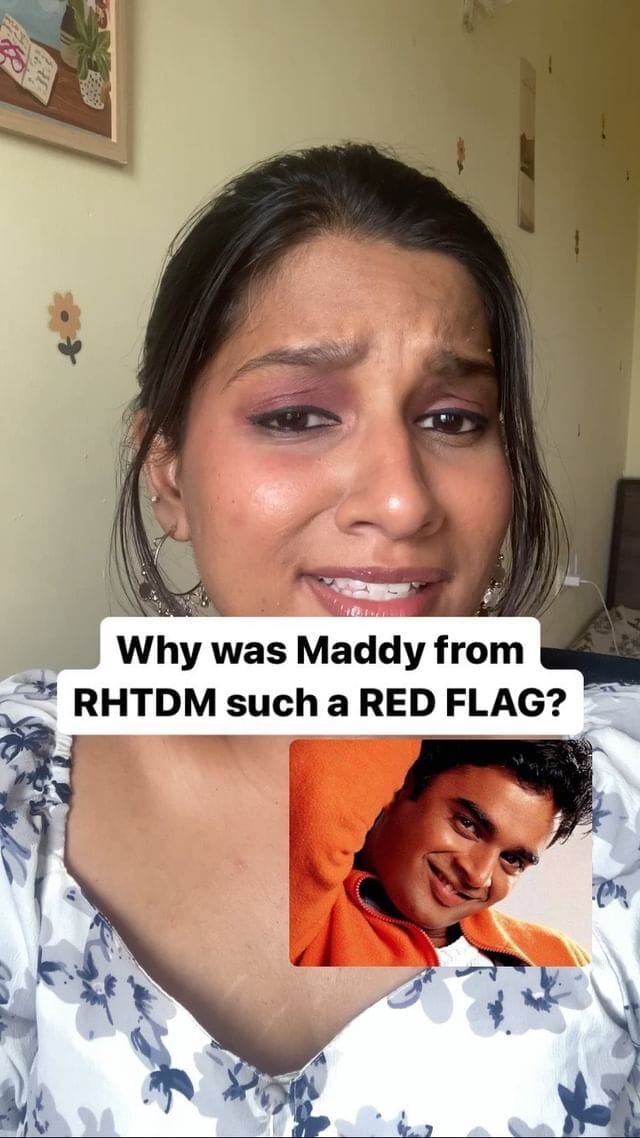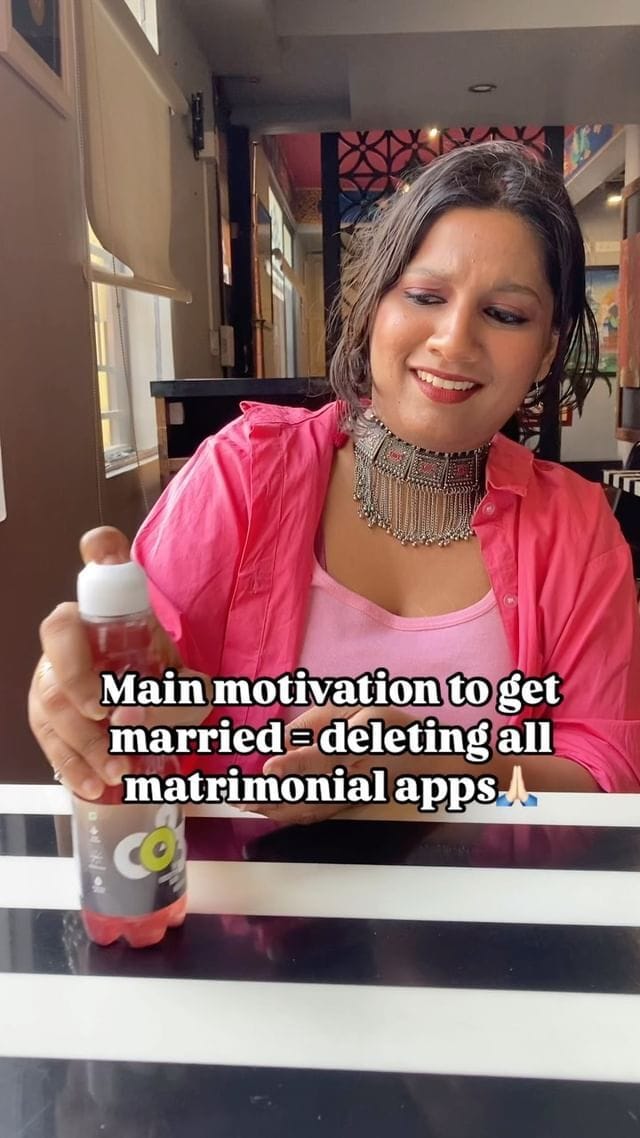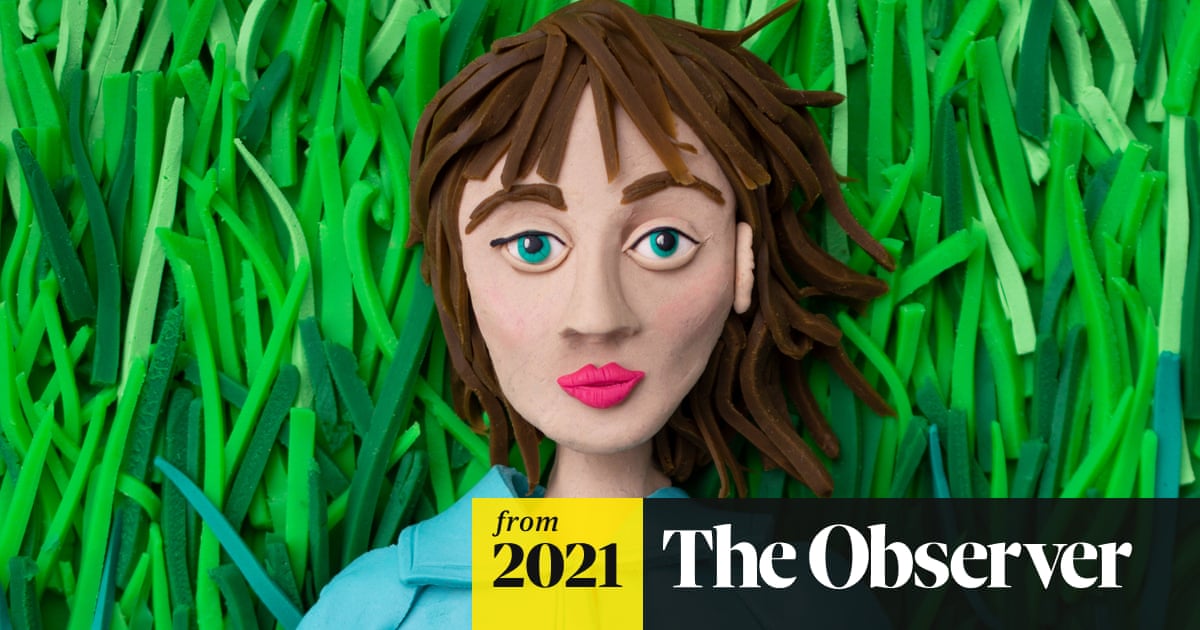- She Got You!
- Posts
- Women exploring matrimony apps are lonely!
Women exploring matrimony apps are lonely!
Says Srilaxmi Menon, a marketing manager at redBus & content creator.

Hello! 👋
Welcome to She Got You!, a newsletter in which I document my conversations with women professionals. I also cover themes related to women; Women in Public is one such article.
Today's conversation is with Srilaxmi Menon, a marketing manager at redBus and a content creator. Although we were colleagues at LBB, we didn't work together, so it was through her Instagram content that we reconnected. I followed her when she had around 500 followers, and seeing her grow to 9.7K followers in such a short span is beautiful. 😍 Her content on matrimony sites, misogyny, and skincare is fun, opinionated, and candid.
And, oh, she is building a fantastic community for women through content.
Sri is witty and warm, and I'm glad I got to know a side of hers that I wasn't all too familiar with at LBB because, as she says, she has a different work personality. Now, here's how she's got you! 👇
Sunaina: Please tell me about yourself and what you do.
Srilaxmi: I’m (nearly) a 30-year-old who started her career in public relations. After a year and a half in PR, I decided to move into a creative space. That's how LBB happened. I joined as a brand strategist and learned everything about brand collaborations, sales and social media on the job.
Those three and a half years at LBB were crucial and shaped my career because you do diverse things as it's a startup. The transition from Edelman to LBB was a cultural shock in some ways as I moved from a corporate to a startup. Initially, I wondered if it was a wrong move.
Sunaina: And did that thought change?
Sri: Absolutely! LBB was career-shaping because I worked with diverse brands and realised I wanted to create content for brands and myself. It was such a fulfilling job, which many people can't say about their jobs, right?
When talking about jobs, people either say they’re good or pay well, but only some call their jobs fulfilling. At LBB, I was creatively satisfied, and I was in my prime 20s, so I gave them my hustle energy. Plus, I was introduced to video content creation there. 🤓
Sunaina: So that’s how you got into content creation?
Sri: Yes! One time, I had to fill up for a shoot because someone wasn't available. Remember how we did those tiny videos for Instagram? That's how it started for me; I was happy ideating, but the team liked the video and asked for more. Although I got comfortable over time, I didn't want a career in content creation then.
After 3.5 years, I consciously decided to upskill through a digital marketing course at IIM Calicut. That 10-month course was a game-changer. It opened up new opportunities and led me to join redBus. I thoroughly enjoy working here.
But yes, I create content part-time. Very strange how things panned out for me, haha!
Sunaina: The nature of your job requires you to spend a lot of time online, right? So, how do you consciously step away? Do you step away?
Sri: I don't step away as much and don't want to lie about it and make someone feel miserable. However, I consciously make an effort not to open Instagram first thing in the morning or before I sleep. I prioritise my sleep and tend to be super cranky if I don't sleep well, which helps me ignore the internet around my sleep hours. This habit also reminds me of my life outside of Instagram. It's easy to get carried away when you're a creator because of the number of notifications and activity on your profile.
I also minimise screen time by spending time with friends; I don't open my phone around them. Plus, I have a full-time job that requires me to work with real people in the real world, which significantly helps. My work personality differs from my online one, so it's crucial to ground yourself through conversations with real people. That's one reason I would continue doing a job, even if I create content, because there's so much to learn and take inspiration from.
Sunaina: That's a great realisation. I'd never leave a 9-5 job to become a full-time writer. 🤷🏼♀️
Sri: I'm a massive advocate for a 9-5 job, okay? It pays your bills; it's a regular income. Like a good 9-5 job and not a toxic one that consumes all your time! A stable 9-5 is a foundation on which you can do multiple things. I’d never ask someone to quit their job to create content because inflation is at an all-time high, and the job market is below par. Being a full-time creator isn't everyone’s cup of tea.
Also, in a 9-5 job, you have a manager, which means there's scope to learn and grow. In content creation, I am my manager. If someone calls my content shit, I can block them and ignore their criticism. I can't ignore or block my manager, right? So it's very humbling to have a 9-5 job or any form of full-time work.
Sunaina: Do you get trolled? How do you deal with it?
Sri: It doesn't get to me at all. But had you asked me this four years ago, the answer would've been: I'm so sad; people don't like me.
As you grow older, you realise people's opinions don't matter or affect you. I'm a strong advocate of therapy and have done a lot of self-work over the last 4-5 years. Therapy has truly changed how I look at myself and those around me. So when someone posts a hate comment, my first thought is: how miserable is this person's life to spit hate on someone?
Can you imagine someone saying, "Your parents should’ve never had you?" We don't say such stuff, right? Trollers who spew hatred are jobless and insecure, so I feel pity towards them because a certain someone sending hate mail from a corner of their room doesn’t affect me. Why are people getting offended by some girl (me) on the internet? If my content on misogyny is hurting you, you might be a misogynist. And I'm a marketer; if I can turn hate into something tangible like engagement, it's good for me, no?
Besides, I don't take feedback from everyone in the name of constructive criticism, and I have few people who can give me honest feedback. It's only their opinion that matters the most.
Sunaina: Right! Talking about misogyny, have you ever faced gender discrimination at work?
Sri: Early in my career, during sales pitches, clients would always direct questions about commercials and data to my male colleagues as if I were invisible. I always had to put in extra effort to be a part of the discussion.
Apart from that, I never actively faced any gender discrimination because brand strategy and PR are majorly female-driven. Thankfully, at LBB, we had a female co-founder, and my first manager was female.
Sunaina: Do you have any advice for brand strategists entering the market?
Sri: Firstly, be interested in it. It's not your typical 9-5 job, and you won't like it if you don't enjoy it. Your mind is always working. 🕰️
The second advice — and I wish I had known this sooner — is to accept rejection with grace. Not all ideas will be amazing, and brands won't approve 80 per cent of them because they may not work for them. Taking that gracefully and not assuming your idea is shit is crucial, you know? Because this isn't a numbers game, there is no right or wrong, and it's subjective.
Finally, have a learner’s mindset. You’ll stumble upon a new trend every day, and you’ll have no textbook or playbook to rely on. You can't get complacent in this space, and I won't mince words: it's a tough space, especially if you’re facing the client.
Keep your work personality separate. I can’t emphasise enough that your work is not your identity. This distinction will help you accept rejections and navigate client calls better.
Advice for women: We're often not taken seriously regarding numbers or data. I know it's unfair, but we should actively bring up numbers and prep before pitches. Just got to prove this isn’t rocket science! 🤷🏻♀️
Sunaina: Absolutely. Is there a myth about brand strategy you'd like to break?
Sri: Brand strategy is often construed as an industry that doesn't offer work-life balance, and to an extent, that's true. If Valentine's Day comes on a Sunday, you have to work on a Sunday. But then, not setting boundaries at work is the main culprit. You must remind yourself that you're a professional and work for certain hours in a day. When there's work on the weekends, of course, you do it. But assert your boundaries as much as you can.
Gen Z does it well and better than us. I wish I had that confidence when I started working because I did extra or ensured I was always available to prove my commitment.
I realised that work-life balance happens when you want it. Many people romanticise working on weekends; they’ll have no work-life balance in any industry. But if you set boundaries, brand strategy is a great space to be in.
Sunaina: Right! So, your content creation started with short reviews on products and makeup. At what point did it transition into content on dating and matrimony sites?
Sri: I started with makeup and skincare because I usually spend a lot on them, so creating content around them made sense. I was posting snippets from my life, stuff I was watching or reading, and I didn't know where this page was heading. I’d call creating content on matrimony or dating apps part serendipity, part frustration.
It stems from my personal life; I'm on those apps, and they consume significant mental bandwidth. One day, I had no content and posted an opinion on matrimony apps. I remember it was a 3-second Reel, which blew up in two days with women agreeing with me in comments. That's when I realised people don't talk about these apps the way they talk about dating apps because it's a sacred space, and your parents are involved in the process.
But the truth is several women suffer from it and have been DMing me their experiences. Since it's an extension of what I’m going through, I started making such content. Sure, there's a question in the back of my mind: What will I do with this niche when I find a partner? But I'll fight that battle when I get there.
Women resonate with my experiences because being on these apps is shitty, and this whole space itself is not female-friendly. It's made for men to find a partner and not otherwise. Women are constantly told what to do — dress or smile a certain way for photos, but such rules don't always exist for men because they're told they'll find a wife no matter what.
If you think about it, women have evolved and worked on their personalities over the years. Even statistics prove there are more single women now, and they prefer being single because they're unable to find equal partners.

My page gives them a venting space without an iota of judgment. Soon, I hope to take this community offline and create a safe space for women. I’ve always been a feminist, and creating this content has sparked an interest in doing more. I believe a community is something I can do outside my job.
Sunaina: What excites you about the future?
Sri: I'm excited to see how my marketing and creation journey come together. I also intend to create a space for women. I don't know how or when, but I know there's a need for it in Indian society. It'll be interesting to see if I can crack it.
I've always wanted freedom, so I might move into freelancing in five years or more. As I age, I want to work less, so I want more flexibility in building my marketing and creation journeys.
Sunaina: Any last advice?
Sri: Don’t worry too much about life because it has its way of figuring out in ways you’d never imagine. And don’t settle; it’s okay to have standards. We’re always taught to be a people pleaser, but our intuition is right, and we know when to give in. Just remember that!
That was my conversation with Srilaxmi. Please follow her on LinkedIn and Instagram to check out her content.
Stuff I’ve been reading 👇
Bless this mess by Tyler Watamanuk on Sofia Coppola’s dishevelled office
Carving out public space in the city by Paper Planes
Research as a leisure activity by Celine Nguyen




Reply